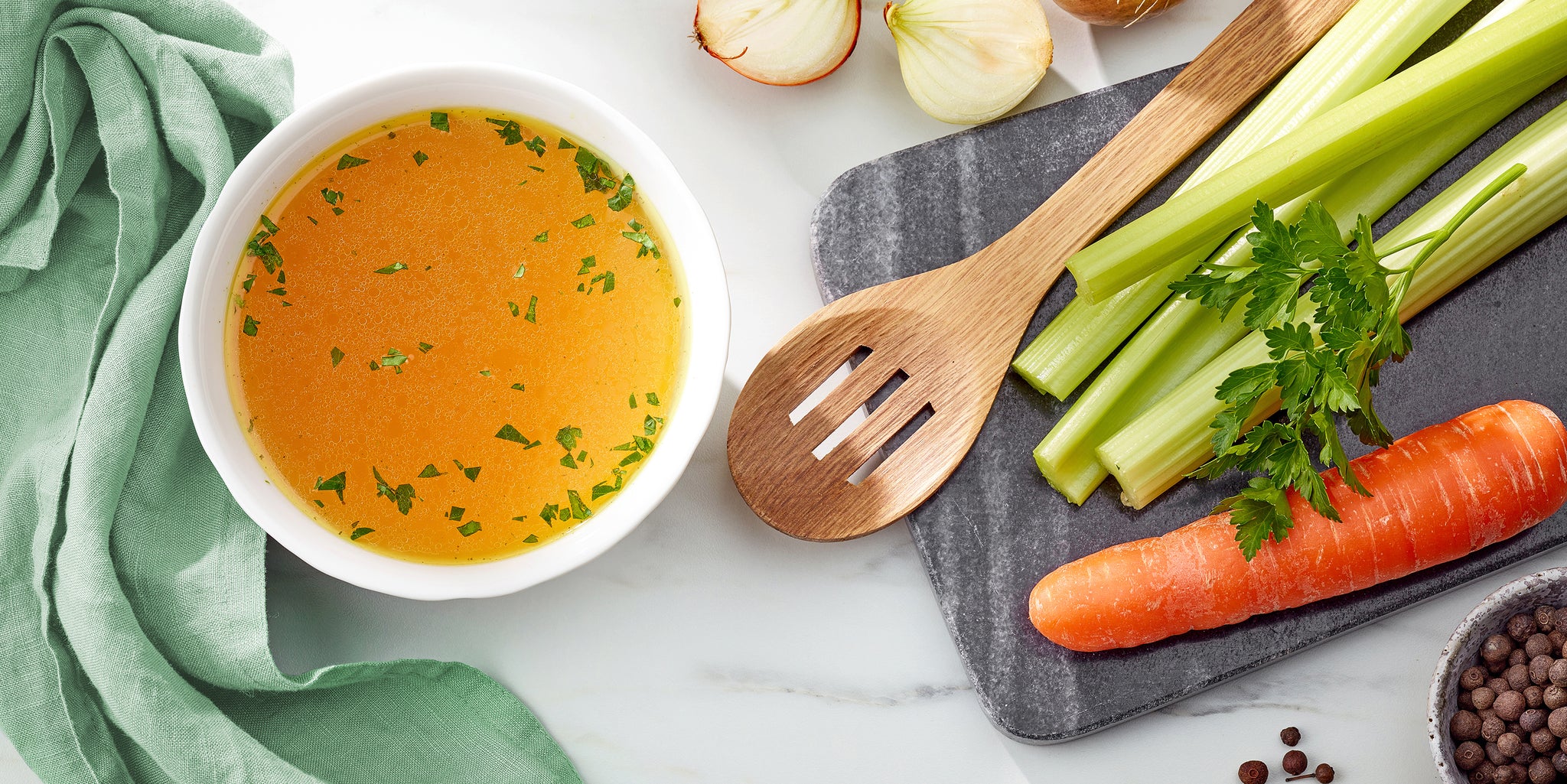Worst Foods to Eat When You Have a Cold

Reading Time: 4 minutes
What to Eat (and Avoid) When You’re Sick
When you’re feeling under the weather, eating might be the last thing on your mind — but what you eat can have a big impact on how fast you recover. Certain foods nourish your immune system, soothe symptoms, and help your body heal. Others can make you feel worse, slow recovery, or increase inflammation.
In this guide, we’ll go over the best and worst foods to eat when you have a cold, plus a few essential vitamins that can help you bounce back faster.
Best Foods to Eat When You’re Sick
The right foods can make a major difference when you’re recovering from illness. Here are some nutrient-rich, comforting choices that support healing and hydration.
1. Chicken Noodle Soup
A classic for good reason. Chicken provides protein to help repair tissue, while the warm broth hydrates and soothes a sore throat. The noodles and vegetables are gentle on the stomach, making it one of the best foods to eat when you’re sick.
2. Leafy Green Vegetables
Leafy greens like spinach, kale, and Swiss chard are packed with vitamins A, C, D, and iron — all vital for immune function. They also help fight inflammation and keep you hydrated.
3. Is Yogurt Good When Sick?
Many people wonder, is yogurt good when sick? The answer depends on your symptoms.
Yogurt can be great for your gut, especially if you’ve been taking antibiotics or have digestive upset. Probiotics in yogurt replenish healthy bacteria and support immunity.
However, if you’re congested, avoid heavy dairy products — even yogurt — as they may thicken mucus for some people. Instead, choose non-dairy or low-fat probiotic options.
4. Herbal Tea
Herbal, caffeine-free teas like chamomile, ginger, and peppermint can calm nausea, relieve sore throats, and help you stay hydrated. Add a spoonful of honey for its antimicrobial benefits and natural soothing effect.
5. Bone Broth
Bone broth is rich in amino acids, collagen, and minerals that promote healing and gut health. Its warmth can also loosen congestion and provide much-needed comfort.
Worst Foods to Eat When You Have a Cold
Not all foods help you heal — some can actually make symptoms worse or slow recovery. Here’s what to skip when you’re sick.
1. Spicy Foods
While mild spice may temporarily clear nasal passages, heavy spice can irritate your throat and upset your stomach. If you’re nauseous or have heartburn, avoid spicy dishes until you recover.
2. Sweets and Processed Sugar
Sugar suppresses immune function and fuels inflammation. When you have a cold, it’s best to avoid candy, pastries, and sugary drinks. Excess sugar can worsen fatigue and congestion, making it harder for your body to fight infection.
3. Is Dairy Bad When You’re Sick?
One of the most common questions during cold season is, is dairy bad when you’re sick?
For some people, yes — dairy products can make mucus thicker and increase congestion. Milk, cheese, and ice cream can also be harder to digest when your stomach is sensitive.
If you crave dairy, opt for lighter, probiotic choices like yogurt or kefir, and avoid full-fat, creamy varieties until you feel better.
4. Fried or Greasy Foods
Greasy meals are hard on the digestive system, especially if you’re nauseous. They can also contribute to inflammation, making recovery slower. Skip fried foods like fries or fried chicken in favor of baked or steamed options.
5. Caffeine and Alcohol
Caffeine can dehydrate you and make rest more difficult, while alcohol can weaken your immune system. When you’re fighting off a cold, hydration and sleep are your body’s best defense — so stick to water, tea, and clear broths instead.
Vitamins and Nutrients to Support Recovery
Even with the best diet, your body sometimes needs extra nutritional support to fight infection. These vitamins and minerals can strengthen your immune system when you’re sick:
1. Vitamin C
Vitamin C is a powerful antioxidant that helps shorten the duration of colds and reduce inflammation. Found naturally in citrus fruits, peppers, and strawberries.
2. Vitamin D3
Vitamin D3 supports immune function, bone strength, and energy levels. Many people are deficient, especially in the winter months when illness peaks.
3. Zinc
Zinc is an essential mineral that helps white blood cells function properly. It’s been shown to reduce the length and severity of colds when taken at the first sign of symptoms.
4. Beta-Glucan
A natural immune-supporting fiber found in oats, mushrooms, and certain supplements. It encourages healthy white blood cell activity to fight infection.
Healthy Habits to Recover Faster
Beyond knowing the worst foods to eat when you have a cold, remember these habits to speed recovery:
-
Get plenty of rest — your body heals while you sleep.
-
Stay hydrated with water, herbal tea, and broths.
-
Avoid smoking and alcohol, which slow healing.
-
Eat small, balanced meals with easy-to-digest proteins and vegetables.
Save 30% on Subscription Orders
If you’re looking for an easy way to support your body during cold season, consider daily immunity vitamins that help you stay strong year-round.
Our vitamins are non-GMO, vegan, sugar-free, and free from the nine most common allergens — formulated to melt fast and absorb efficiently.
Subscribe today and never run out of your essentials.
Use code EZ30 at checkout to save 30% off your first subscription order.
Key Takeaways
-
The best foods to eat when you’re sick include chicken soup, leafy greens, herbal tea, and bone broth.
-
The worst foods to eat when you have a cold are spicy, fried, sugary, or dairy-heavy.
-
Wondering is yogurt good when sick? — yes, if it’s probiotic and low in fat.
-
Ask your doctor before taking new vitamins or supplements while sick.
-
Hydration, rest, and balanced nutrition are the best medicine.


















